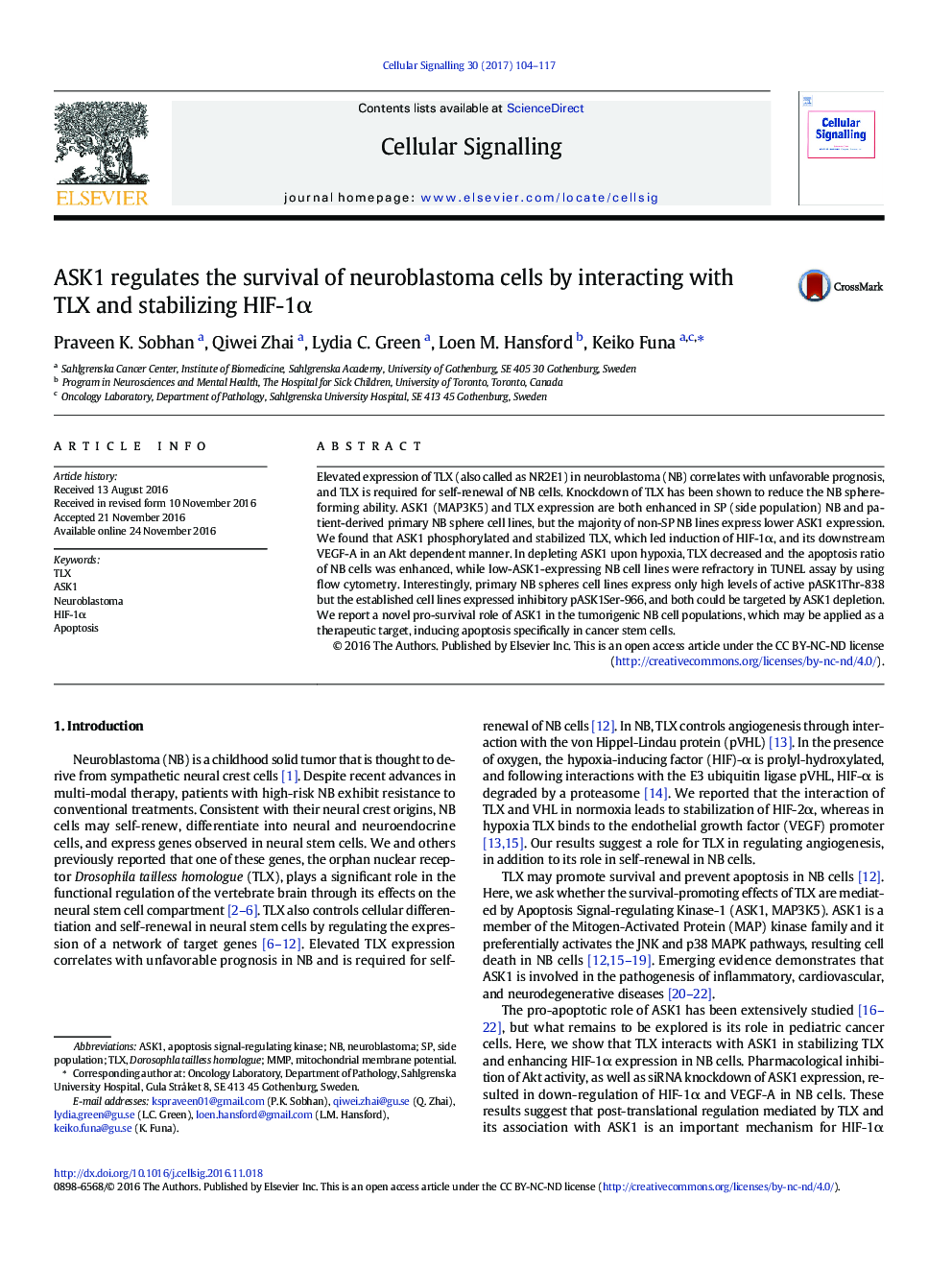| Article ID | Journal | Published Year | Pages | File Type |
|---|---|---|---|---|
| 5509438 | Cellular Signalling | 2017 | 14 Pages |
â¢Tumorigenic neuroblastoma expresses higher levels of ASK1 than non-tumorigenic cells.â¢Stabilized TLX increases downstream signaling proangiogenic HIF-α and VEGF.â¢Depletion of ASK1 in tumorigenic neuroblastoma cells in hypoxia induces apoptosis.â¢ASK1 may be used as a therapeutic target, inducing apoptosis in cancer stem cells.
Elevated expression of TLX (also called as NR2E1) in neuroblastoma (NB) correlates with unfavorable prognosis, and TLX is required for self-renewal of NB cells. Knockdown of TLX has been shown to reduce the NB sphere-forming ability. ASK1 (MAP3K5) and TLX expression are both enhanced in SP (side population) NB and patient-derived primary NB sphere cell lines, but the majority of non-SP NB lines express lower ASK1 expression. We found that ASK1 phosphorylated and stabilized TLX, which led induction of HIF-1α, and its downstream VEGF-A in an Akt dependent manner. In depleting ASK1 upon hypoxia, TLX decreased and the apoptosis ratio of NB cells was enhanced, while low-ASK1-expressing NB cell lines were refractory in TUNEL assay by using flow cytometry. Interestingly, primary NB spheres cell lines express only high levels of active pASK1Thr-838 but the established cell lines expressed inhibitory pASK1Ser-966, and both could be targeted by ASK1 depletion. We report a novel pro-survival role of ASK1 in the tumorigenic NB cell populations, which may be applied as a therapeutic target, inducing apoptosis specifically in cancer stem cells.
Graphical abstractDownload high-res image (187KB)Download full-size image
